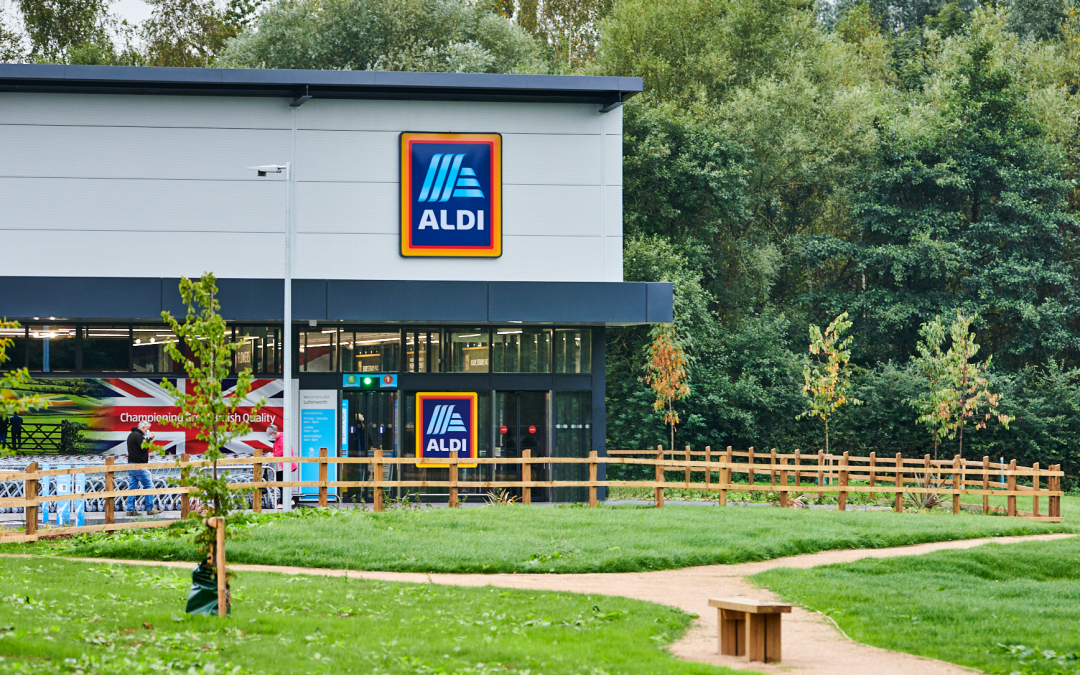UK discounter Aldi has released its latest sustainability report in Great Britain, announcing a 57% reduction in its food waste and subsequently hitting its 2030 target eight years early.
The supermarket had committed to reduce food waste by 20% by 2025 (from a 2017 baseline) and to halve food waste by 2030, in line with the Courtauld 2030 and UN SDG Champions 12.3 commitments.
Since achieving its targets, Aldi has revised its current goal and is aiming to reduce food waste by 90% by 2030.
Aldi said that its sustainability report “highlights the success of its new eco concept store”, which it opened last year as part of its efforts to significantly reduce emissions while making it easier for shoppers to reduce, reuse and recycle. The store is trialling refill fixtures to “help customers shop more sustainably” and is using energy saving initiatives such as solar panels and chiller doors to reduce energy consumption. Meanwhile, Aldi reported that redesigning the building structure also helped to reduce overall energy demand by 57%.
Other commitments made by Aldi to reduce food waste include:
- Reducing plastic by 50% by 2025
- Reducing 50% of all packaging by 2025
- Ensuring 50% of all plastic packaging is made of recycled content by 2025.
Giles Hurley, CEO at Aldi UK, said: “We’ve seen millions of shoppers switch to Aldi during a time when many household incomes are squeezed. At the same time, consumers expect businesses to act responsibly.
“We have a huge role to play in making sustainability affordable for all. We believe that doing the right thing for people and the planet, while offering unbeatable prices, can go hand-in-hand and we’ll continue to report on our progress in the months and years to come.”
Liz Fox, national sustainability director at Aldi UK, said: “We’re dedicated to taking steps that positively impact the environment and we know one area where we can have a big impact is food waste.
“This has never been more important – not only for the planet, but in helping people get access to food that’s both high-quality and affordable.
“We’re proud of the progress we’re making, which we’re pleased to share in our first sustainability report, and that’s why we’re looking to push ourselves even further. As we continue to expand our footprint and broaden our customer base, we want to continue to do so in a sustainable and responsible way,” said Fox.
“We know this is important to Aldi shoppers and to our supply partners. And while we still have a lot of work to do, we’re always looking for new ways to innovate to lower our environmental impact across our operations, whether through using renewable energy to power our stores and redistribution centres, to reducing food waste and packaging.”









